The content of the article
When teeth erupt in children, it causes major changes in the child’s behavior. If parents are not prepared for this, then it can cause a shock in them. Dad and mom are seriously alarmed by the inappropriate behavior of the child, and do not know what to do. Meanwhile, the child needs help. Therefore, parents very often ask the question of how to do this. The main condition is to surround your child with care from the mother.
At the time when the teeth are cut, the process may be accompanied by the occurrence of pain. To eliminate this phenomenon, there are a large number of massagers and gels.
What is the help?
The process of teething occurs in each child in its own way. Naturally, the external manifestations in different children are of a different nature. Individual babies do not externally react to this process, remaining as calm in appearance. Their general well-being does not suffer. Others become so restless and excited that parents simply do not know what to do with them. The baby is constantly crying, even during the period when he is breastfeeding.
The baby's gums become swollen, and drooling, which is called "flowing river." Gums can itch and itch intolerably. The baby’s sleep becomes restless. During the night, he constantly wakes up, accompanying the awakening with intense screams. An increase in body temperature may be noted, and digestive problems may occur. During this period, a similar condition should be distinguished from an adherent viral infection. An experienced pediatrician can easily establish that the reason for the baby’s behavior lies in the physiological process in which teeth erupt.
How do children develop teeth?
The condition is usually painful. This is known even to those who do not have their own children. Teeth begin to develop even at that moment when the child is in the womb. This begins to occur when the gestational age reaches 8 weeks. Sometimes time boundaries can shift in one direction or another. Initially, 20 primordia appear, which subsequently become milk teeth.
The situation should cause excitement as follows: if the child is already a year old, and his teeth do not think to erupt. In this case, you should definitely consult with a pediatric dentist. An x-ray examination will be prescribed. It may happen that there are no teeth due to the lack of rudiments for their development. But it also happens that the baby has teeth already at birth. It all depends on heredity and many other factors.
Teething events
When this process takes place, various external manifestations may take place. But it also happens that not one of the signs is observed, and apparently nothing happens in the baby’s behavior. Although more often you can observe the following symptoms:
Drooling profusely. This is due to the fact that the teeth begin to cut. Saliva is present on the chin, other parts of the face. But the child’s skin is soft, so pronounced signs of irritation quickly arise: the skin turns red, the appearance of pimples is noted. The phenomenon is removable and for this you need to use any baby cream. You can apply absolutely any cream that you like the most and is best suited for the baby. It is previously recommended to lubricate pimples around the mouth with tincture of calendula, a decoction of chamomile or a string.
At this time, the child begins to bite everything that falls under his gaze and will be in his hands. This is due to a condition in which the gums itch very much, which causes the child significant anxiety.
Signs of inflammation appear. Such a reaction is nothing more than a defense against irritation of the delicate gums. Some babies experience severe pain, while others simply do not. The most intense pain is noted when the first teeth and incisors appear. Although, there may be various variations, depending on the individual characteristics of the child's body.
With increased inflammation, periodic pain may become permanent. The intensity of pain in different children is different and is accompanied by unequal time. Some children experience it for several weeks. But in most cases, the tooth erupts within 3-5 days, after which the baby no longer cries from pain.
When feeding the baby is very capricious. The kid constantly drags something into his mouth. It seems that he is hungry and constantly wants to eat. But as soon as he begins to suckle a breast or a pacifier on a bottle with an artificial mixture, his sense of discomfort intensifies. For this reason, he is eliminated from feeding, although more recently he clearly showed a feeling of hunger.
If solid food is already present in the baby’s diet during this period, then he will lose all interest in it. It just hurts and uncomfortable to accept it. But do not worry about this. When the teething process is completed, everything will fall into place. Together with breast milk, he still has enough of all the necessary nutrients. After the teeth erupt, a complete restoration of appetite will occur.
But some situations should be alarming. This applies to cases when a child refuses to eat for more than two days in a row or simply clearly undernourishes. In this case, the advisory assistance of a pediatrician is required.
Some mothers complain that diarrhea develops during teething. The relationship between diarrhea and teething is debatable. There is no consensus on this. Some believe that an abundance of saliva can cause thinning of the stool. Other scholars do not see any connection in this. Probably, it’s better to consult a doctor with the appearance of loose stool to find out the causes of this condition.
Fever as a symptom can also occur with teething. The question of the relationship between these two phenomena is also controversial. According to some doctors, fever is the result of gum disease. Other pediatricians explain this ARVI, because during the growth of teeth the child’s body is weakened, and it begins to hurt. In any case, if the temperature at elevated numbers lasts more than three days, you should seek medical help.
The process of teething occurs not only in the daytime, but also at night. The vagaries of the child during daylight hours can be continued at night. For this reason, a child can often wake up at night. If the baby is breast-fed at this time, the mother’s breast will be the best analgesic.
On the gums, the appearance of bluish tubercles may be noted. This should not cause concern. They are able to resolve independently, without additional corrective measures. An effective action of parents will be the use of a cold compress. It will accelerate the process of resorption of hematomas.
Gums become painful. Due to the presence of pathways, the pain can spread to other departments. It can be an ear, a cheek, some other area. Such conditions must be differentiated with other various diseases, for example, pain should be distinguished when teething with otitis media.To do this, seek the advice of a doctor.
Helping a child
To alleviate the condition of the baby, the following measures are required:
- It is necessary to massage the gum in the place where the appearance of the tooth is expected. You can do this with a clean finger. For fidelity, you can wrap it with a clean bandage. The baby's gums are tender, so you do not need to press hard. Massaging movements should be light.
- The baby is equipped with a special dental teether. It should be washed thoroughly. Giving it to the child is preferably cool. The material will come in contact with the gum, and will help reduce pain. You can use special gel rings. It is desirable that there are two. One ring is given to the baby, and the other is in the refrigerator for cooling at this time.
- You can offer your baby a slice of a cool apple. You can give a cucumber or cracker. The kid will procrastinate him, while still receiving additional complementary foods.
- If there is an increase in temperature, then antipyretic drugs in children's doses can be used.
Medicines
During teething, various medications can be of significant help. It is recommended to use drugs of the following groups:
Oral products for analgesia and anti-inflammation
Mostly for children, these funds are available in the form of syrups and rectal suppositories. Most commonly, paracetamol with various commercial names and ibuprofen are used. But it should be remembered that analgin is contraindicated in children at any age. You can not give the child acetylsalicylic acid (aspirin) and all its analogues, since this can cause the onset of conditions associated with severe liver damage.
Means for local application
They are available in various dosage forms. Perhaps the use of gels, creams, ointments, drugs in the form of drops. Their composition can be both natural and chemical in nature. Most often, anesthetic gel is used. It is convenient to apply. In addition, gums are massaged.
These funds are characterized by the occurrence of a quick effect. They already begin to show their effect in 1-2 minutes. Some of them are used before meals, others after eating. Repeated application is required throughout the day. Anesthetic prior to breastfeeding is not recommended. The fact is that with their use there is a violation of the sensitivity of the tongue. And this affects the process of absorption of milk by the child.
The use of homeopathic remedies
They are characterized by mild action and are ideal for the baby. Their release is established in granules, tablets, in the form of syrups, rectal suppositories. Possible release in another form. With the help of these tools you can quite well eliminate the pain. In addition, digestion will improve. The effect of such drugs is systemic. To achieve maximum results, a doctor’s consultation is required. He will conduct a selection of drugs based on the individual characteristics of the child's body.
Antihistamine group
They are used in the form of tablets, syrups, drops, in other forms. Gums become less swollen, itching phenomena decrease. They can be used in combination with other drugs.
The period of teething is associated with significant stress for the child's body. Most children at this time are characterized by an unstable psycho-emotional state. The child needs to be helped to cope with this unpleasant state of health, surrounding him with affection and care. It is necessary, in addition to the use of drugs, to use distractions. They consist in giving the baby teething babies, a piece of solid food, and holding massage events.
After the child has got teeth, it is necessary to accustom the child to the fact that they must be looked after. Naturally, they need to be cleaned. This must be done for the reason that milk teeth prepare a place for the appearance of the main molars. If the child will lose them prematurely, this can lead to deformation of the jaw or gums.
Video: teething symptoms

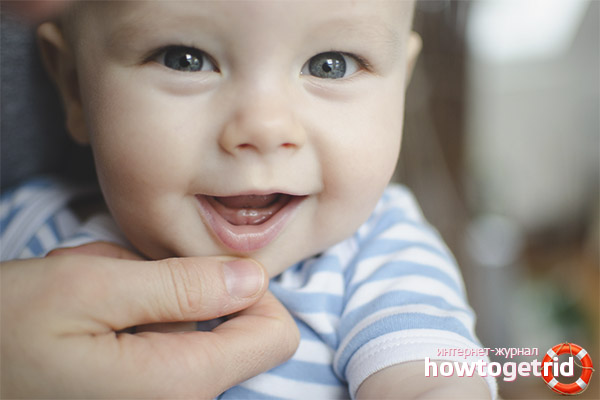
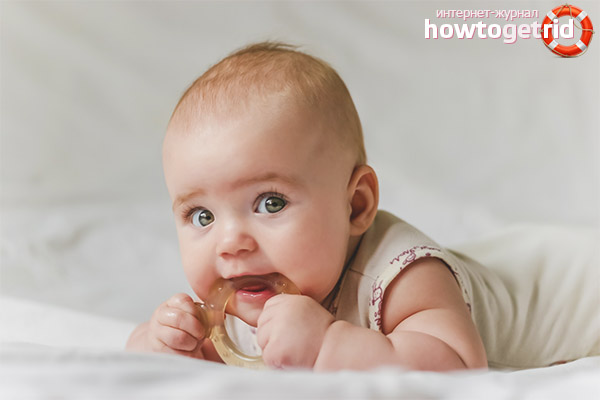

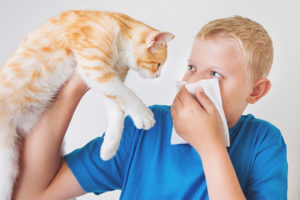

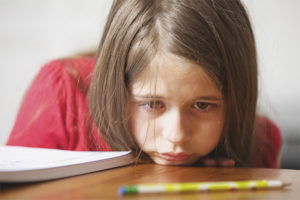
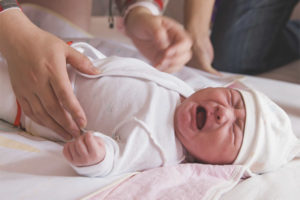
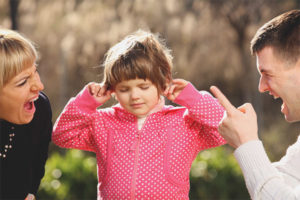
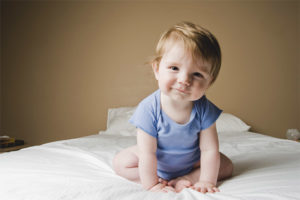
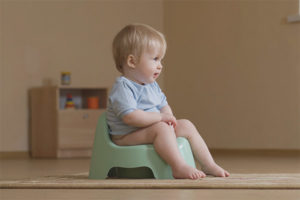
Submit